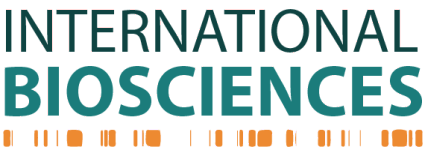DNA Test for Surrogacy
Price: Quoted on case by case basis
Testing: Petitioning/ commissioning parent/s and child/children
Timeframe: Varies depending on type of test.
What is Surrogacy?
The term surrogacy refers to situation where a woman carries and gives birth to a child or children on behalf of another person or couple. The woman who carries and delivers the child is known as the surrogate mother. A surrogate mother is chosen by couples who are unable or unwilling to have children of their own and is an alternative to adoption. A surrogate mother is usually chosen either by individuals themselves or through companies and agencies.
Surrogacy DNA Testing
DNA testing is often used by couples who need to confirm if the sperm used for the treatment was taken from the correct man. Ensuring that the sperm donor is coming from the right source, a person or a couple may want to confirm the match through the help of a DNA paternity test.
In the case of immigration, if surrogacy may not be an option in their home country, persons wishing to undergo the process may have to travel to another country in order to do so. This is common where surrogacy for commercial purposes is illegal and surrogacy must be unpaid. Couples in such cases will seek treatment elsewhere. However, when returning with the child back to their own country they may have to prove the parental relationship to the authorities, which can be done through DNA parentage testing.
Parental DNA testing, whether paternal or maternal may be chosen in order to ensure that the parents name or names listed on the child’s birth certificate are correct. For cases where legal verification is required it can be a little more complex in that it must go through specific and strict procedures.
Types of Surrogacy
There are two types of Surrogacy that exist known as Traditional surrogacy and Gestational surrogacy.
In traditional surrogacy, sperm is usually implanted into the surrogate mother’s fallopian tubes therefore increasing the chances of fertilization leading to pregnancy. This is referred to as artificial insemination. The most important consideration in this type of surrogacy is that the surrogate mother is the biological mother of the child and this can have certain legal implications. Normally, certain the surrogate mother is bound by laws whereby she must renounce her rights as the parent of the child, transferring those the rights to the person or couple who have opted for surrogacy.
On the other hand, gestational surrogacy is done using In Vitro fertilization also known as IVF. This is the more costly option as opposed to the more traditional surrogacy method. The process of gestational surrogacy occurs in a laboratory. Hormone therapy is required in order for the woman to produce multiple eggs, after which time the sperm and egg are fertilized externally, under laboratory conditions and the embryo is implanted directly into the surrogate mother’s uterus. This option, unlike the previous one, is biologically independent from the surrogate mother in that the children born are the biological children of the egg and sperm donors.
With regards to sample collection, it depends on which country the surrogacy DNA tests are taking place. For example if the persons involved in the test are not in their own country then it will most likely be arranged through the embassy or consulate. For sample collection the process involves handling by an official designated third party, called a sampler. This “chain of custody” is put into practice to ensure samples are collected correctly and that therefore, results are accurate.
FAQs
How do I order my test?
We, at International Biosciences, can assist you with your DNA test for surrogacy. We treat all cases on an individual basis. Contact us for more information about your case as well as pricing.




